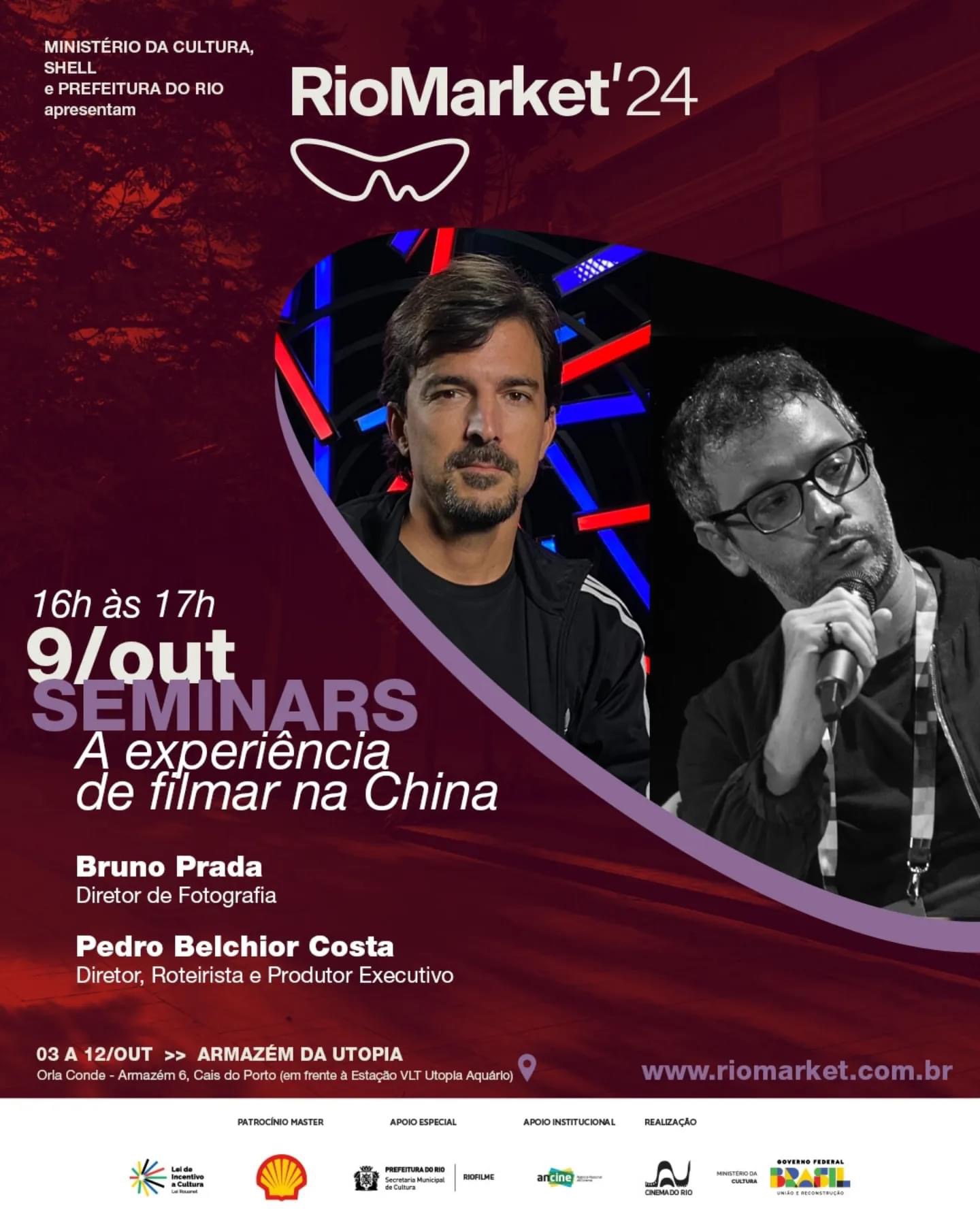RioMarket Panels Wednesday: Audiences, Piracy, China, Indigenous People A diverse range of topics will be discussed Wednesday in RioMarket including filming in China, working with indigenous people, and piracy

The main theme of the first seminar at RioMarket on Wednesday afternoon will be the strategies and techniques used to create audiovisual content capable of winning over a diverse audience, overcoming cultural, age or social differences. Marcos Altberg of Indiana Produções and Luiz Antonio Silveira of Ultravioleta will discuss how the choice of universal themes, the construction of inclusive narratives and the use of accessible language can be some of the strategies used to captivate the viewer. It will also discuss how to achieve a balance between local relevance and global appeal in order to speak with different audiences on different platforms.
A diverse panel will debate the challenges caused by piracy and the economic and creative impact caused by the illegal distribution of content, as well as presenting technological solutions and public awareness strategies. That will be followed by a panel discussing the use of Artificial Intelligence techniques and tools to identify, track and reduce digital piracy. Challenges in applying the technology and the future of copyright protection will also be explored, as AI could transform the audiovisual industry.
Pedro Belchior Costa and Bruno Prada will explore the challenges and opportunities of filming in one of the world's oldest cultures, China. They will discuss how logistics, bureaucracy and cultural differences impact on audiovisual production. They will also discuss the techniques and adaptations needed to film in Chinese locations, how they interacted with local crews and the peculiarities of working in one of the largest global audiovisual markets.

Closer to home an experienced panel will look at the challenges and opportunities for the representation and participation of indigenous peoples in the cultural industry. The panel will address issues such as the preservation and valorisation of indigenous cultures, the importance of authorship and one's own narrative, and the risks of cultural appropriation in the audiovisual market. The social and cultural impact of these productions will also be highlighted.
At the end of the afternoon a panel will look at how the evolution of filming infrastructure, driven by technological advances and changes in audiovisual demands, is allowing for more agile, accessible and creative productions. The impact of new digital cameras, the popularisation of virtual studios and the use of equipment such as drones and CGI will be discussed.
Voltar

